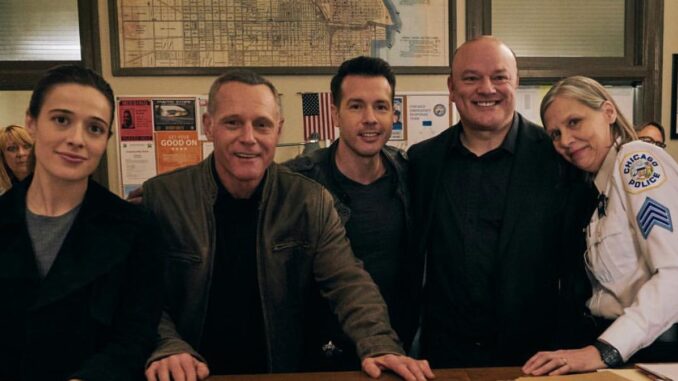
Chicago P.D. fans are still buzzing after one of the most unexpected and intimate moments of Season 13 — a rare, steamy scene featuring Kevin Atwater (LaRoyce Hawkins). Known more for his professionalism and stoicism than romantic entanglements, Atwater’s latest storyline gave viewers a deeper, more vulnerable look at the man beneath the badge. But as the dust settles, fans are asking: what did that scene truly mean, and what comes next for Atwater?
In the episode, Atwater’s connection with Celeste (portrayed by Amanda Payton) reignited in a moment of both passion and pain. Their chemistry, which has always simmered under the surface, finally came to a head in a scene that was more than just physical — it was emotional, symbolic, and deeply human. It marked a rare instance where Atwater allowed himself to step outside the relentless pressure of his job and embrace something real, even if only for a fleeting moment.
But as Chicago P.D. has proven time and again, love rarely comes without consequences. The next morning, the emotional weight of the encounter began to set in. Atwater, typically guarded and composed, showed signs of inner conflict. For years, he’s been defined by his sense of duty — the cop who puts others before himself, who always does the right thing, even when it costs him personally. This scene shattered that armor, reminding viewers that he’s still a man longing for connection in a world that constantly demands his detachment.
LaRoyce Hawkins, in an exclusive interview following the episode, described the moment as “a breakthrough” for Atwater. “He’s learning that vulnerability doesn’t make him weak,” Hawkins explained. “It’s part of what keeps him grounded. Atwater’s love life has never been simple, but that’s because his world isn’t simple. Every choice he makes carries weight.”
The scene’s rawness wasn’t just about romance — it was about identity. Atwater has long wrestled with his place between two worlds: as a Black man in America and as a police officer in a city still grappling with racial tension. His relationship with Celeste, who once accused him of betraying his community by being a cop, forces him to confront that duality head-on. The intimacy they share is tinged with unresolved questions — trust, forgiveness, and the fear that love might not survive the reality they live in.
Visually, the scene was handled with restraint and sensitivity. Director Chad Saxton focused on the quiet tension rather than overt sensuality, capturing the moment as a complex intersection of need and hesitation. Fans praised the show for giving Atwater space to express a side of himself that rarely sees the light.
So, what’s next for him? The aftermath of that scene is likely to shape Atwater’s emotional trajectory for the rest of the season. His vulnerability could make him more introspective, more cautious — or perhaps more willing to fight for balance between his personal life and professional obligations.
In a show often driven by grit and gunfire, this quieter, more intimate moment reminded audiences why Kevin Atwater remains one of Chicago P.D.’s most layered and compelling characters. Beneath the badge beats a heart still searching for peace — and, maybe, for love that can survive the chaos.
